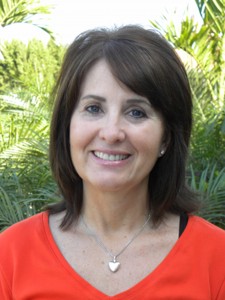Best-selling JKP author Liane Holliday Willey (Pretending to be Normal, Safety Skills for Asperger Women, and others) is credited with coining the term ‘Aspie’ to describe individuals with Asperger’s Syndrome. Here, Dr. Holliday Willey weighs in on the semantics debate within the autism community over the term.
 I am a psycholinguistics professor. I like to study language acquisition and the way people use language to express their thoughts. I’m particularly interested in semantics, metaphor analysis and perspective taking. I tell you this because it helps me explain why I chose to label myself an Aspie rather than a person who has Asperger syndrome. My basic premise is simple. The word Aspie is just that—a word. One word. A simple noun that easily snuggles into a sentence with little effort. It is far less cumbersome to say (or write) “I am an Aspie” or “Aspies find it difficult to understand non-verbal language” than it is to say “I am a person who has been diagnosed with Asperger syndrome” or “People who are diagnosed with Asperger syndrome find it difficult to understand non-verbal language.”
I am a psycholinguistics professor. I like to study language acquisition and the way people use language to express their thoughts. I’m particularly interested in semantics, metaphor analysis and perspective taking. I tell you this because it helps me explain why I chose to label myself an Aspie rather than a person who has Asperger syndrome. My basic premise is simple. The word Aspie is just that—a word. One word. A simple noun that easily snuggles into a sentence with little effort. It is far less cumbersome to say (or write) “I am an Aspie” or “Aspies find it difficult to understand non-verbal language” than it is to say “I am a person who has been diagnosed with Asperger syndrome” or “People who are diagnosed with Asperger syndrome find it difficult to understand non-verbal language.”
You see my point? The word Aspie is short and sweet. I talk fast. I write fast. I think fast. If I were a musical notation I’d be a staccato not a slurry legato. If I were a bird, I’d want to be a hummingbird that flies around here, there everywhere within a blink of an eye. I’d be very depressed if I found myself on the opposite end of the bird world, stuck inside the feathers of a big ol’ turkey lumbering to get off its feet to nap in a nest. Now before someone thinks to reply with something like, “Wait, is Holliday Willey saying if we don’t like the term Aspie, we are stupid turkeys?” let me remind you, I’m a writer who likes to use images to express myself. Nothing more. There’s no subtext here. Just a picture of two birds, one little and fast, one big and slow.
And that brings me to my next point. Subtext. Semantics. I often read debates and declarations making the point that the word Aspie implies a superior mindset, as compared to for example, someone who has been labeled as autistic. I urge caution when or if this thought occurs, because it may well be an example of erroneous perspective taking. I personally know no one who thinks being labeled Aspie means we are better than, superior to, or more capable of anyone on any measure. I suppose there are those who might use the term Aspie to give themselves a feeling of comfort they may not have if they called themselves autistic, but that’s their choice and I won’t let it define who I am or how I define the word Aspie. Conversely, I hear from people who think the term Aspie makes too little of life with Asperger’s syndrome, that using this simple word belittles the challenges or makes those with Asperger syndrome look like a lump of lemmings who are all identical in their needs and wants. I don’t understand this point of view. Again, we’re talking perspective taking. Seriously—how in the world does a five-letter word create such havoc?
I’m often credited with being the first person to use Aspie in print. If that’s the case I have the right to define the word properly and here it is: Aspie—a person with Asperger syndrome.
That’s it. Please, let’s not waste our precious time debating the merits, the semantics, or the use/disuse of five little letters. Don’t we have far more important things to concern ourselves with such as health care for those who aren’t receiving it? Insurance coverage for individuals with special needs? Civil rights for anyone who is being denied them? Satisfying employment, academic equality, equal opportunity housing for all? Acceptance, understanding and celebration of differences?
Look, I don’t care if a person wants to slow their tongue around an entire bunch of words to express the fact they have an autism spectrum difference. I’m just saying those of us who choose to say Aspie should be free to have the same liberty of self-expression. Let’s not let this word, any word, make us fight amongst one another. To each his own. Isn’t that the best sort of motto for we with a difference? Isn’t that what diversity is all about?
Liane Holliday-Willey is the author of Safety Skills for Asperger Women, Pretending to be Normal, Asperger Syndrome in the Family and Asperger Syndrome in Adolescence, all published by Jessica Kingsley Publishers. For more information on Dr. Holliday Willey, please visit www.aspie.com or tweet her at aspie101.